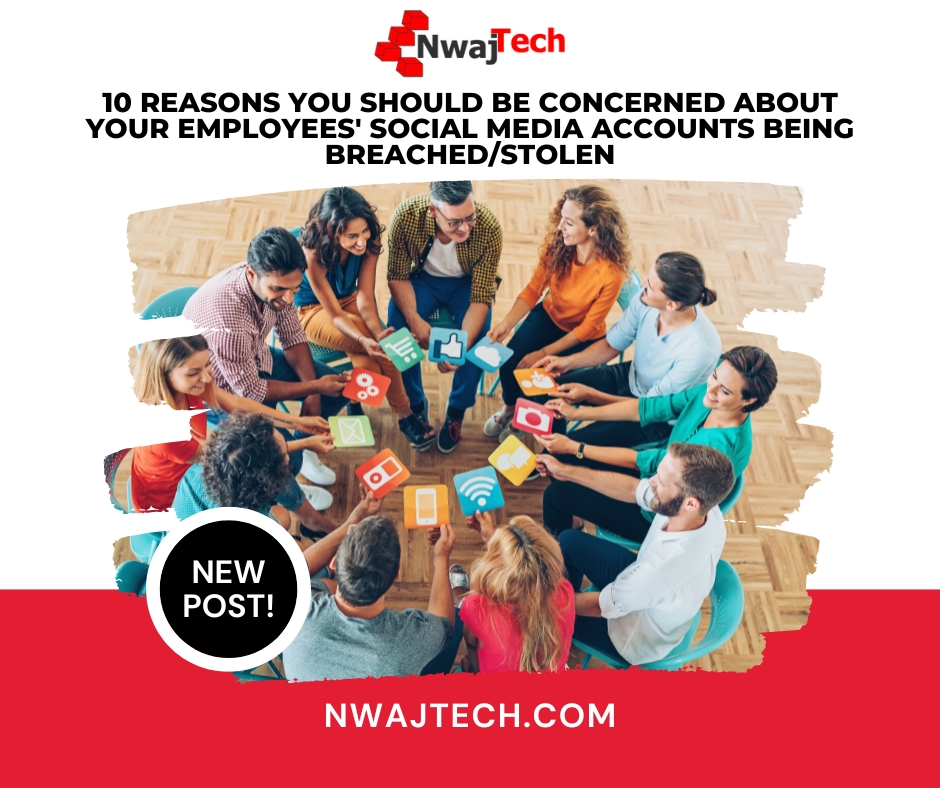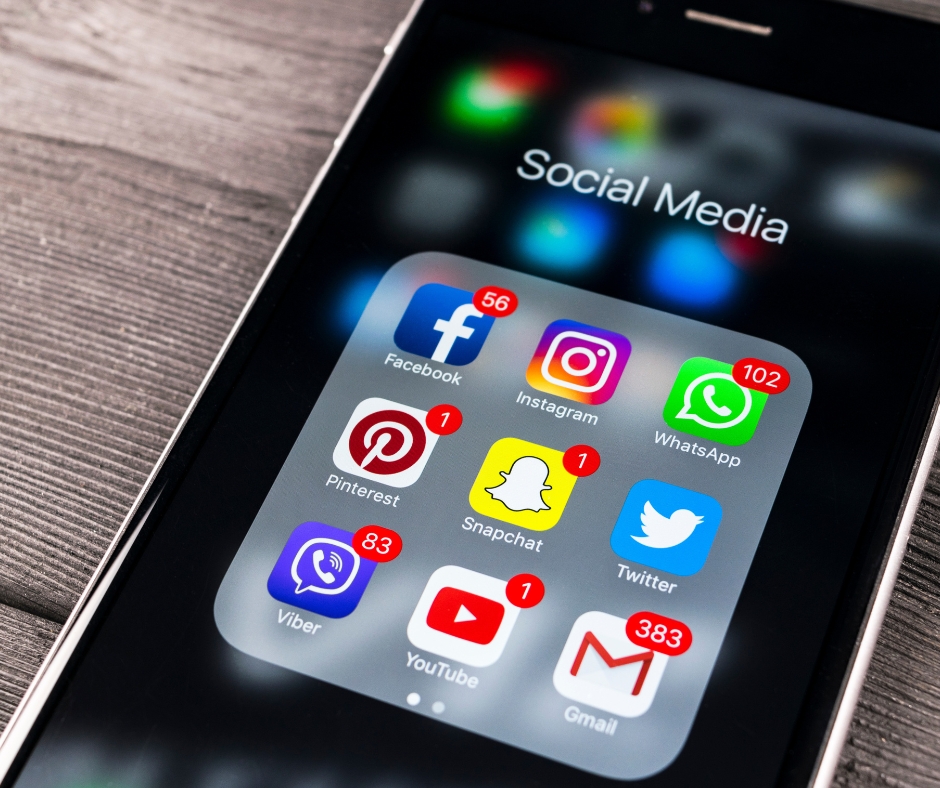
Why should you be concerned about employee social media accounts being breached/stolen?
Cybersecurity professionals are tasked with knowing where the next attack might come from. When I review how secure a business is I consider everything including physical access.
Some businesses have their act together when it comes to cyber-hygiene and compliance. They follow best practices, provide security & awareness training for all employees, and have a mature Zero Trust Infrastructure.
But when it comes to what happens outside the physical and virtual walls of their business, they ignore it.
It’s safe to say most of us have social media accounts (if you’re reading this you most likely saw this on a social media account). Major social media platforms such as Facebook, Instagram, X, TikTok, and LinkedIn are valuable targets for cybercriminals for various reasons. They are often sold on the dark web or used to further another cybercrime.
What if I told you that an employee losing access to their social media account could have dire consequences to your business?
Here are 10 risks to an employee having their social media accounts compromised.
- Unauthorized Access to Personal Information
-
- Data Theft: Hackers can access personal details such as your birthdate, email address, phone number, and even physical address.
- Identity Theft: With sufficient information, cybercriminals can impersonate you to open new accounts, apply for loans, or commit other fraudulent activities.
- Financial Fraud
-
- Monetary Loss: If your social media is linked to financial accounts or payment methods, hackers can make unauthorized transactions.
- Phishing Scams: Hackers may use your account to send malicious links to your contacts, tricking them into providing sensitive information or money.
- Damage to Personal and Professional Reputation
-
- Inappropriate Content: Hackers might post offensive or inappropriate material under your name, damaging your reputation.
- Spam and Malware Distribution: Your account could be used to spread spam or malware, affecting your credibility and relationships.
- Privacy Violations
-
- Exposure of Private Messages: Personal conversations, photos, and documents shared through private messages can be leaked.
- Doxing Risks: Sensitive information could be publicly disclosed, leading to harassment or stalking.
- Manipulation and Blackmail
-
- Extortion Attempts: Hackers may threaten to release embarrassing information unless a ransom is paid.
- Emotional Manipulation: They might impersonate you to manipulate friends and family for personal gain.
 Loss of Account Access
Loss of Account Access
-
- Permanent Lockout: Hackers can change your login credentials, making it difficult or impossible to regain control of your account.
- Deletion of Content: Valuable photos, messages, and connections could be lost if the criminal deletes your data.
- Legal Consequences
-
- Liability Issues: You might be held responsible for any illegal activities conducted through your hacked account.
- Complicity in Cybercrime: Unknowingly facilitating the spread of malware or participating in cyberattacks can have legal ramifications.
- Compromise of Connected Accounts
-
- Cross-Platform Breach: If you use the same password across multiple platforms, hackers can access other accounts like email, banking, or online services.
- OAuth Exploitation: Third-party apps connected to your social media could also be compromised, expanding the scope of the breach.
- Negative Impact on Mental Health
-
- Stress and Anxiety: The violation of personal space can lead to significant emotional distress.
- Trust Issues: Concerns about privacy and security may affect your willingness to engage online.
- Corporate Risks
-
- Confidential Information Leak: Business plans, proprietary information, or client data could be exposed.
- Brand Damage: Unauthorized posts can tarnish a company’s image and lead to customer distrust.
- Financial Losses: Potential loss of revenue due to reputational damage or direct financial fraud.
- Extortion Attempts: Attackers could extort your employee into becoming an insider threat by threatening to leak sensitive information.
How Can You Help Your Employees Stay Secure?
Employers should encourage their employees to take extra care in protecting their social media accounts (as well as all other online accounts and application access).
- Strengthen Passwords: In the same way you should be encouraging strong password usage within your business you should encourage your employees to protect their online accounts. Use complex passwords that include upper case, lower case, numbers, and special characters. The longer the password the better.
- Enable Two-Factor Authentication (2FA): the same as passwords. At minimum 2FA should be enabled for every online account. If you can add multiple forms of authentication including biometrics that is even better.
- Monitor Account Activity: Regularly check for unfamiliar login locations or activities.
- Be Cautious with Third-Party Apps: Limit permissions and only use trusted applications.
- Educate Yourself on Phishing: Security Awareness Training (SAT) should include lots of education about phishing and all of its variations (Smishing, QRishing, Vishing, etc.). Utilizing the training you provide to your employees for personal interactions should be encouraged.
- Regular Updates: Keep your devices and applications updated to protect against vulnerabilities.
- Backup Important Data: Regularly save copies of important information in secure locations.
- Privacy Settings: Adjust your account settings to limit the amount of personal information visible to others. For example, on Facebook limit who can see your friends list to connections only.
Cybercriminals are increasingly sophisticated, constantly seeking new ways to infiltrate businesses. While technical and physical security measures are essential, the most crucial defense lies in raising awareness among your people. With the rapid growth of Artificial Intelligence and the escalating threat of deep fakes, cybercriminals are using every tool at their disposal to find their next victim.
Why Awareness is Your Best Defense
Technological safeguards like firewalls, antivirus software, and secure networks form the first line of defense. However, cybercriminals often exploit the human element—our employees and colleagues—to bypass these barriers. Social engineering, phishing attacks, and now deep fake technologies are being used to deceive individuals into unwittingly granting access to sensitive information.
Need help with your Security Awareness Training? Give us a shout!
